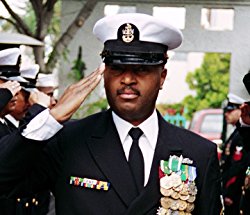A Quote by Dick Cheney
Whoever controls the flow of Persian Gulf oil has a stranglehold not only on our economy but also on the other countries of the world as well.
Related Quotes
...by serving as the dominant power in the Gulf, WE maintain a 'stranglehold' over the economies of other nations. This gives us extraordinary leverage in world affairs, and explains to some degree why states like Japan, Britain, France, and Germany - states that are even more dependent on Persian Gulf oil than we are - defer to Washington on major international issues (like Iraq) even when they disagree with us.
Americans once believed that their prosperity and way of life depended on having assured access to Persian Gulf oil. Today, that is no longer the case. The United States is once more an oil exporter. Available and accessible reserves of oil and natural gas in North America are far greater than was once believed. Yet the assumption that the Persian Gulf still qualifies as crucial to American national security persists in Washington. Why?
The Chinese get over 40 percent of their oil from the Middle East through the Persian Gulf, but have you ever seen a Chinese aircraft carrier sitting inside the Persian Gulf? For at least 40 years, the United States of America has been guaranteeing Chinese energy supplies. Sitting here today, the US provides funds to, honest to God, 99 percent of the countries on the planet. We even give North Korea humanitarian aid. We give them food, and God knows what they do with it. They probably feed it to the crooks in the headquarters.
The climate, financial and national security crises are all connected. They share the same cause: Our [the USA's] absurd dependency on foreign oil. As long as we need to spend billions of dollars each year to buy foreign oil from state-run oil companies in the Persian Gulf, our problems of a trade deficit, a budget deficit and a climate crisis will persist.
Language matters because whoever controls the words controls the conversation, because whoever controls the conversation controls its outcome, because whoever frames the debate has already won it, because telling the truth has become harder and harder to achieve in an America drowning in Orwellian Newspeak.
I candidly confess that I have ever looked on Cuba as the most interesting addition which could ever be made to our system of States. The control which, with Florida, this island would give us over the Gulf of Mexico, and the countries and isthmus bordering on it, as well as all those whose waters flow into it, would fill up the measure of our political well-being.
By accident of geography, the world's major oil resources are in Shi'ite-dominated areas. Iran's oil is concentrated right near the gulf, which happens to be an Arab area, not Persian. Khuzestan is Arab, has been loyal to Iran, fought with Iran not Iraq during the Iran-Iraq war. This is a potential source of dissension. I would be amazed if there isn't an attempt going on to stir up secessionist elements in Khuzestan.
The median family income in the U.S. is lower than it was a quarter-century ago, and if people don't have income, they can't consume, and you can't have a strong economy. There's significant risk - actually it's no longer a risk - a significant likelihood of a marked slowdown not only in China, but also in a lot of other countries like Brazil, which is in recession. All of the other countries that depend on commodities, including Canada, are facing difficulties. So it's hard to see a story of a strong U.S. economy.
?I believe that it is very difficult in the world of today to continue with G-8 only without taking in account the importance of Brazil, China, India, many in the world economy, because these countries are great consumers, large consumers, and we're also becoming great producers, and also because we were better prepared than the rich countries for the nowadays global crisis.

































